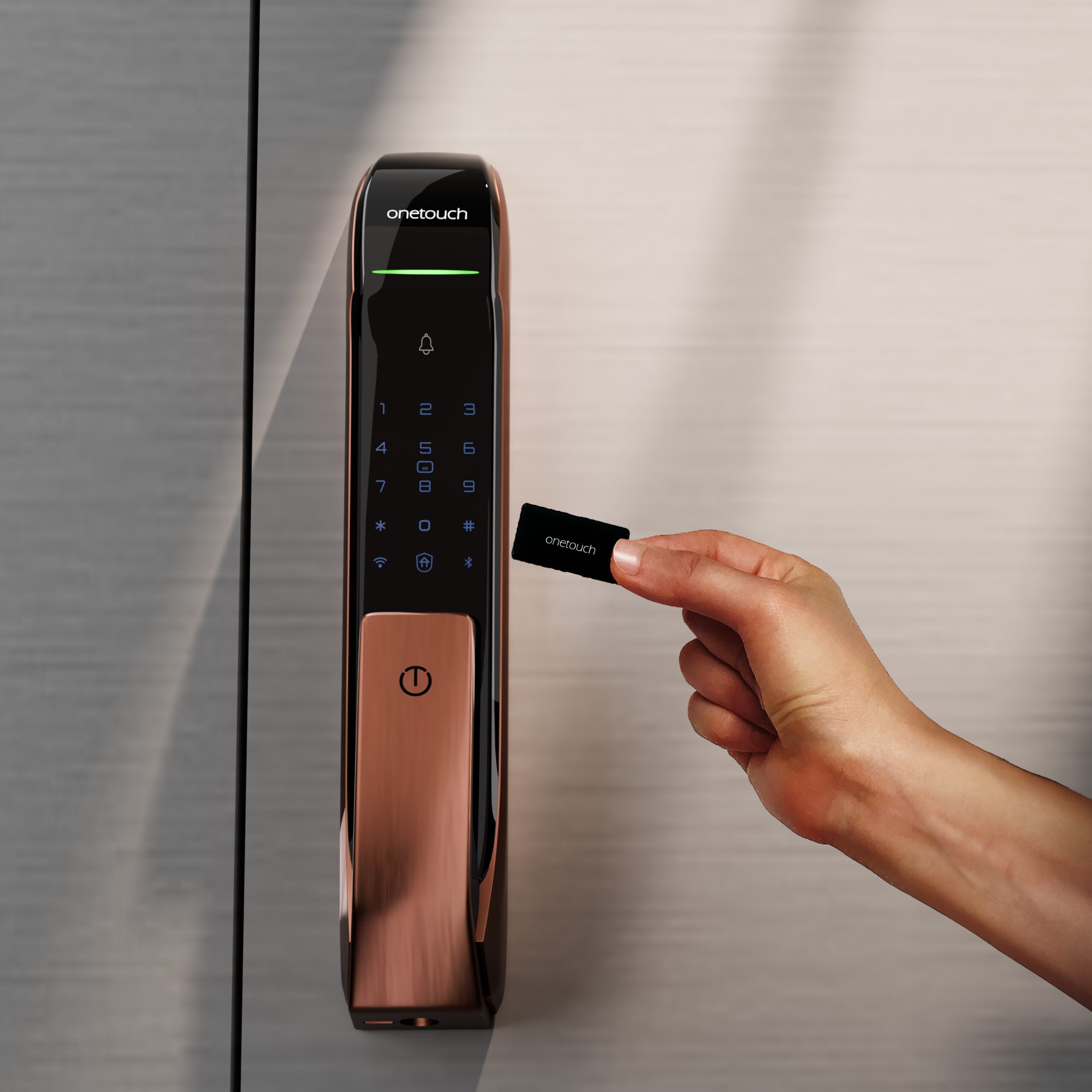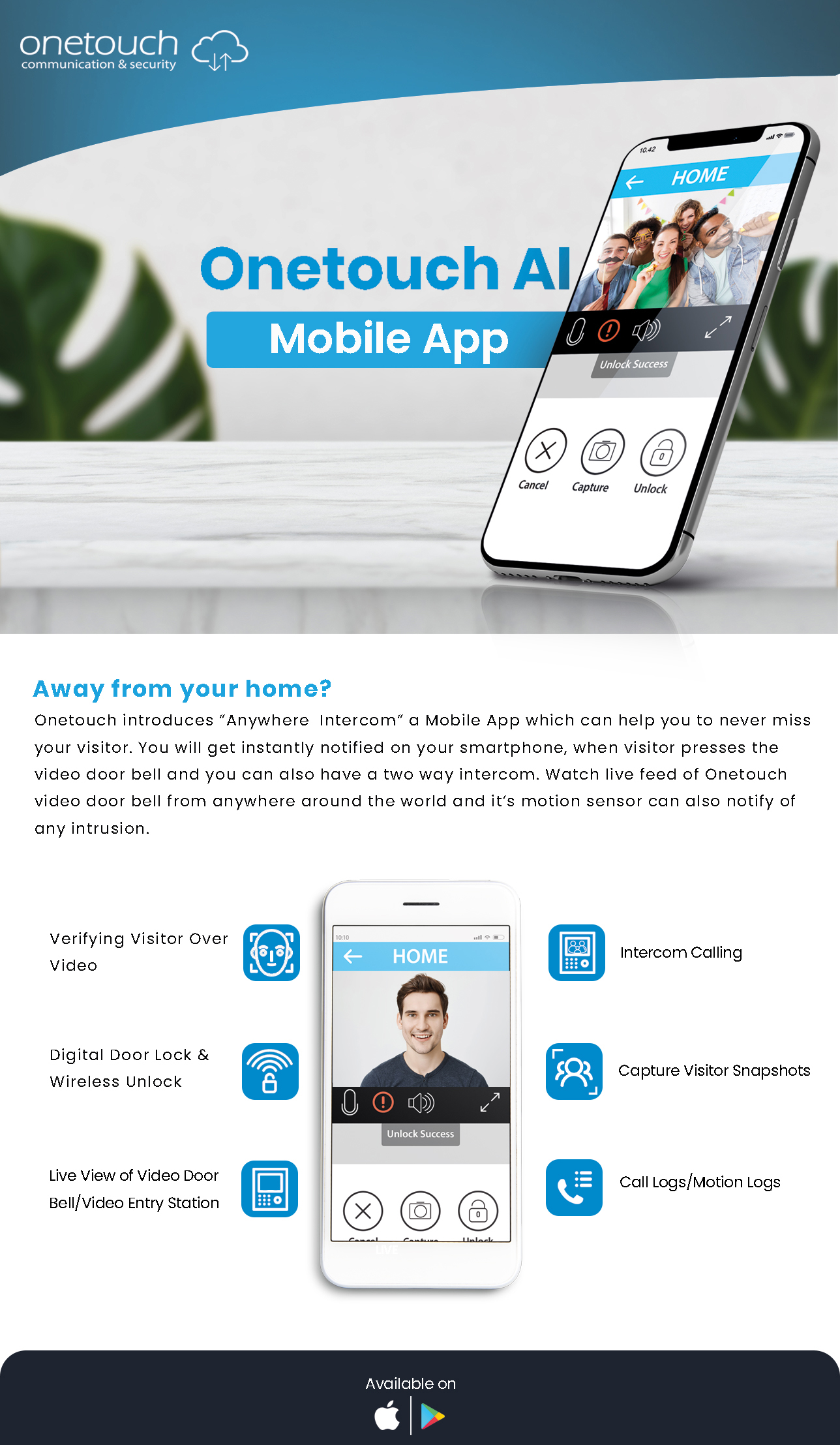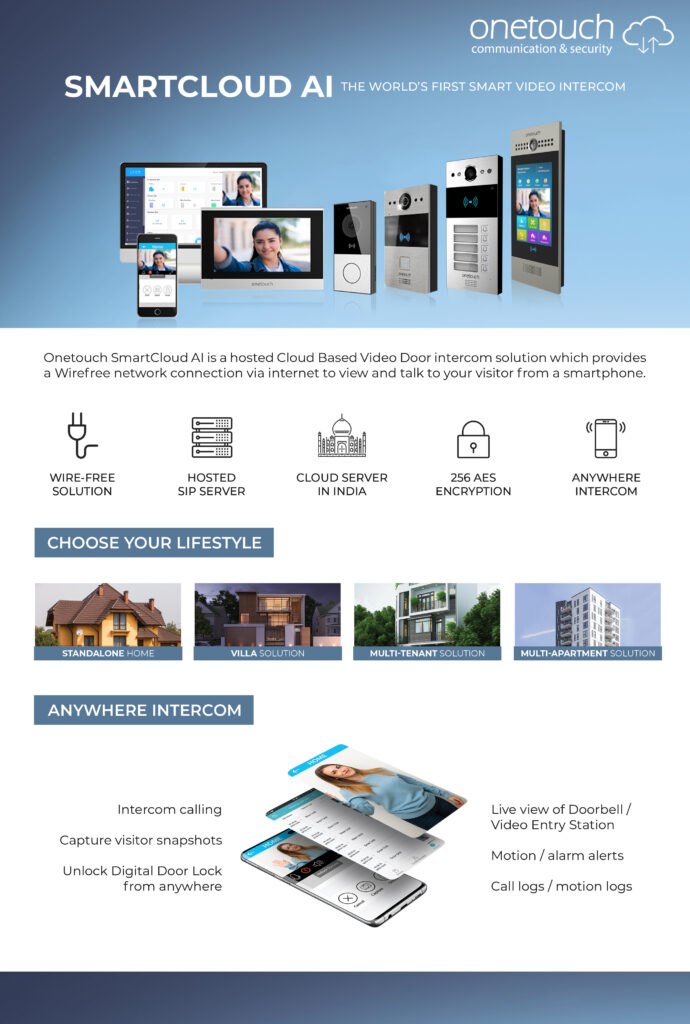Every homeowner legitimately fears break-ins into their home. In today’s tech-driven society, relying solely on yesterday’s deadbolt systems feels increasingly inadequate. Luckily, innovative solutions like smart door locks address this growing need for better security.
These sophisticated home security locks go beyond keyless entry, offering features such as smartphone control, dynamic passcodes, and real-time monitoring. They provide a level of security and convenience previously unimaginable.
Let us break down the inner workings of a digital door lock for home and explore the compelling reasons why investing in a smart lock system is a wise decision for modern homeowners.
How Do Smart Door Locks Actually Work?
It might seem like futuristic magic, but the technology behind smart door locks is surprisingly straightforward, built upon a clever combination of established principles and modern innovation:
The Electronic Deadbolt (or Locking Mechanism)
Unlike traditional home security locks that rely solely on physical keys and tumblers, smart locks incorporate an electronic deadbolt or a similar motorised locking system. The electronic component is the muscle behind the smarts. When activated through your phone, the keypad, or your thumb, you send an electronic signal instructing the motor to engage or disengage the bolt, securing or unlocking your door.
Batteries and Wiring
Of course, smart door locks need power to operate these electronic components. Most units are battery-powered, typically with standard AA or CR123A batteries. This allows for relatively easy, inexpensive, wiring-free installation in most retrofit situations. Battery life varies by usage and model, but many smart locks offer impressive longevity (up to 12 months or beyond) and will alert you well in advance when battery replacement is needed.
A higher-end or commercial digital door lock for homes and businesses offers wired options, which provide constant power and enable more power-hungry features. That said, battery-powered units are overwhelmingly more common for residential use.
Connectivity
The “smart” in smart locks comes from their ability to communicate or connect. This connectivity is achieved through various wireless technologies, primarily:
- Bluetooth: Many smart door locks use Bluetooth for direct short-range communication. It’s ideal for unlocking your door as you approach your home. Some advanced smart door locks come with a Bluetooth bridge module. This accessory connects to the door lock and grants homeowners remote access to the system. With that, users can generate temporary keys and perform other operations via the mobile app when needed. This not only benefits accessibility but also makes the door lock significantly battery efficient.
- Wi-Fi: Some Bluetooth-enabled smart locks can also connect to your Wi-Fi, enabling you to control them from anywhere in the world over the internet, generate temporary OTPs, receive real-time alerts, and integrate with smart home systems.
- Z-Wave and Zigbee: These are mesh network protocols specifically designed for smart home ecosystems and are known for their reliability and efficiency. Locks using these protocols require a supported smart home hub to bridge communication to the Wi-Fi network.
Ways to Unlock
The most appealing aspect of these digital door locks is how you can control access. Common methods include:
- Smartphone App: The most prevalent method. You can remotely unlock, view activity logs, and check the lock status anywhere.
- Keypad: The built-in keypad allows for pin code entry, providing a convenient keyless option for family members, guests, or people who don’t have their phones handy.
- Fingerprint Scanners (Biometrics): A simple touch of your registered fingerprint unlocks the door quickly and securely – for ultimate convenience and security!
- Face Recognition: Offering completely hands-free entry, face recognition allows for unlocking the door automatically as one approaches.
- RFID Cards/Fobs: Similar to key cards used in hotels, some smart locks support RFID (Radio-Frequency Identification) cards or fobs for tap-and-go access.
Ultimately, the utility of smart door locks lies in their intuitive user experience, making accessing your home secure, effortless, and adaptable to your lifestyle.
Want to Know Which Smart Door Lock Is Best for You? Talk to Onetouch!
Why You Need a Smart Door Lock
These smart home security locks are rapidly becoming essential to modern home security. Here’s why:
- Unpickable Keyless Design: Traditional locks, while familiar, have inherent limitations. Keys can be lost, stolen, or duplicated, and lock-picking remains a threat. Smart locks remove these risks by eliminating the need for a physical key. Moreover, reliable models boast robust designs that are more resistant to tampering than standard mechanical locks.
- Detailed Activity Logs & Real-Time Monitoring: Smart locks record every lock and unlock event. Many systems also send real-time smartphone notifications, informing you of door activity, attempted forced entries, or even when your kids arrive home from school.
- Auto-Lock: Ever left for work or vacation and then panicked, wondering if you locked the door? The good news is that most smart locks lock automatically. With a Wi-Fi-enabled door lock, you can remotely confirm the lock status from anywhere using your phone!
- Keyless Entry: Imagine approaching your doorway with your hands full of groceries. A smart lock can auto-unlock the door when it detects your phone nearby. Moreover, for someone with limited dexterity, especially older people and PwD, using a fingerprint or a keypad with large buttons becomes easier than fiddling with a key.
- E-Keys: Models with dynamic passcode functionality allow you to generate time-limited access codes or “e-keys” that you can easily share with guests, delivery boys, caregivers, or service providers without the hassle of physical key exchanges. And, crucially, you can revoke these e-keys instantly.
- Smart Home Integration: Modern smart locks integrate with popular smart home platforms, such as Amazon Alexa, Apple HomeKit, Google Assistant, and Samsung SmartThings. Thus, you can control your lock as part of broader hands-free home automation and routines.
Upgrade Your Home Security the ‘Smart’ Way
Smart door locks have transformed home security for the better. These innovative digital door lock for homes are no longer a distant concept; they are the present and the future of how we make our homes less appealing targets for opportunistic burglars. Whether it’s the robust security features, the keyless convenience, or the peace of mind of knowing you can monitor and control your home security lock from anywhere, the advantages are undoubtedly compelling!
Take a Step Towards a Safer, Smarter Home – Visit Onetouch!
FAQ
1. Are Onetouch smart door locks weatherproof and suitable for outdoor use?
Like many smart locks, Onetouch’s offerings are designed to be weatherproof and suitable for exterior doors. Look for models explicitly rated for outdoor use, and check their IP (Ingress Protection) rating for dust and water resistance to ensure durability in various climates.
2. Should I install my smart lock myself (DIY) or hire a professional?
DIY installation saves costs and suits those comfortable with basic home projects. Professional installation ensures correct setup, handles wiring, and offers labour warranties. Choose based on your skills, time, and installation complexity. Read more here!
3. Are there any ongoing subscription fees associated with a home security lock?
Most standard residential smart locks do not require a subscription for basic functionality. However, advanced features such as cloud storage for video recording (for video doorbells with built-in locks) or professional monitoring usually involve optional fees.
4. Can digital door locks integrate with my existing home alarm system?
Smart door locks are designed to integrate with universal home security systems. Z-Wave and Zigbee-compatible locks are particularly well-suited for this. Check for compatibility with your alarm system to enable linking with alarm triggers or central monitoring.








